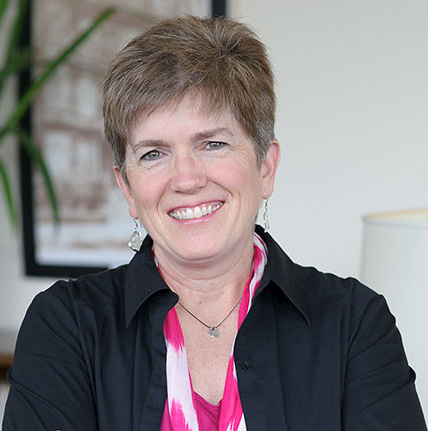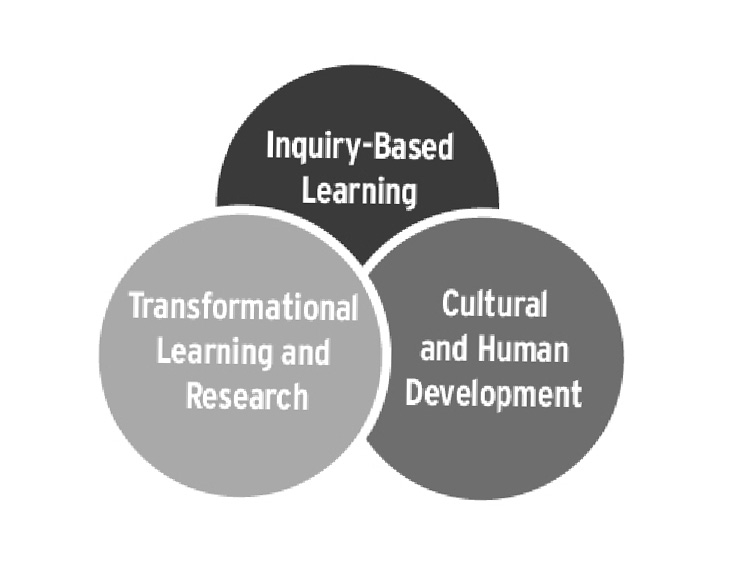[Editor’s Note: This issue’s Conversation features an interview by Kim Harriman, MSW, Editor-in-Chief of the Field Educator with Julie Drolet, PhD, Professor in the Faculty of Social Work at the University of Calgary and Project Director of the Transforming the Field Education Landscape partnership. Her research in the field of international social work focuses on disaster social work, immigrant settlement and integration, social protection, social development, and social work field education. She is a registered social worker with the Alberta College of Social Workers (ACSW). She collaborates with several interdisciplinary teams of scholars on various research initiatives, and employs numerous students as research assistants. We invite readers to learn more by reading Dr. Drolet’s article in the Practice Digest section of this issue, entitled “A New Partnership: Transforming the Field Education Landscape – Intersections of Research and Practice in Canadian Social Work Field Education.”]


Kim Harriman: Hello Julie, thank you so much for your willingness to share your work with the Field Educator. You are the principal investigator for a major research initiative on social work field education in Canada. Can you please provide our readers with some background on your project?
Julie Drolet: Social work is a profession concerned with helping individuals, families, groups, and communities to enhance their individual and collective well-being. With approximately 50,000 social workers in Canada, the profession plays a critical role in the delivery of social services. Stakeholders in field education include professional bodies, post-secondary institutions, government employers, and social work practitioners. The social work profession and the accrediting and regulatory bodies for social work education recognize the critical importance of practicum in preparing the future social service workforce. The Canadian Association for Social Work Education (CASWE) Standards for Accreditation require students to complete a minimum of 450 hours for MSW graduate students and 700 hours for BSW undergraduate students in the field; the same standards also require student research competence (CASWE, 2014). The project, entitled “Transforming the Field Education Landscape,” will provide the opportunity through a large scale educational and practice collaboration to explore new ways of bringing together field education and research efforts to solve the current challenges in field education and in integrating research into practice.
KH: Who is the funding source for the “Transforming the Field Education Landscape” project?
JD: The project is funded by the Social Sciences and Humanities Research Council of Canada’s (SSHRC) partnership grant program. The proposal underwent a two-staged application and review process that took approximately two years, with a formal interview with a multidisciplinary review committee. The partnership was awarded approximately $2 million (CAD) for the project.
KH: You have indicated that this project was born out of a sense that field education in Canada was reaching a “crisis point.” Can you say a little more about this? How was that crisis manifesting?
JD: Field education is a required component in all undergraduate and graduate social work education programs across North America. Social work education programs have been experiencing significant multi-layered challenges with delivering practicum experiences to social work students and with integrating research and practice in field education. Field education coordinators have faced increasing challenges associated with unprecedented growth in social work education programs and rising student demand for placements. Also, field instructor recruitment and retention has emerged as a top concern over the past decade and increased annual turnover rates of practica sites are growing, creating a vicious cycle whereby field programs are continuously undertaking efforts to procure new practicum opportunities. This situation has culminated in field education coordinators from across Canada releasing a joint statement calling for educational institutions and the profession to find new ways of addressing this growing and significant problem (Ayala et al., 2018). The crisis is at a tipping point and needs to be addressed before it negatively impacts the learning needs of students and ultimately the ability of the profession to deliver quality services to our communities.
Allied disciplines, such as human services, counseling, psychology, education, medicine, nursing, and health sciences, provide practice placements with various expectations. Despite recognition of the importance of clinical placements in allied disciplines, there is a global shortage of practice placements for students due to staff shortages, training costs, budget cuts, and increasing competition for placements with the expansion in the number of programs and increased class sizes, which result in professional programs facing similar challenges in finding enough suitable placements for students. Despite the challenges in securing quality placements in allied disciplines, the literature demonstrates that students are eager to enhance their employability through professional experience gained through workplace and clinical placements, internships, apprenticeships, and co-ops that enhance their learning in practical and academic domains.
KH: What do you think are the variables that have brought field education to this point?
JD: There is an urgent need for social work education programs to re-vision how field education is conceptualized, structured, and delivered, and ultimately how the profession prepares the next generation of social workers. New practices, insights, and approaches to teaching and learning are urgently needed in order for social work education to thrive in evolving and increasingly demanding social contexts, educational landscapes, and labor markets.
In particular, there is a need for more sustainable practicum models to be developed and implemented. Further, there is a continual concern over the disconnect between research and social work practice and the extent to which research evidence is not fully used to inform social work practice. Numerous studies call for the integration of research in social work practice, specifically in field education. The field is both a critical resource to, and a benefactor of, the academy, yet in both instances, the lack of integration across facets of social work (practice and research) impedes the advancement of the profession, which vicariously renders service users at greater vulnerability due to this unresolved disciplinary struggle.
KH: What are the goals of your project?
JD: The goal of the project is to integrate research and practice in the preparation of the next generation of social workers by developing partnered research training initiatives, both within academia and across the public and not-for-profit sectors, that enhance student research practice knowledge and applied skill development. The partnership has five objectives:
1) transform social work field education by bridging the gap between research and practice through joint training initiatives, projects, and other forms of multi-stakeholder engagement and integration;
2) strengthen the recognition of the importance of social work practice research by enhancing knowledge and skills among students, postdoctoral fellows, and current and future practitioners;
3) train and mentor students and postdoctoral fellows through new partnered research training initiatives that build the research capacity of the current and future generation of social work scholars, practitioners, and policymakers;
4) support the development of sustainable models of field education through engaging students and postdoctoral fellows in research on promising practices in field education across the country; and
5) engage students and postdoctoral fellows in partnered knowledge mobilization and the multi-directional exchange of knowledge on promising practices in Canada and internationally for sustainable field education and practice research.
There are several theories that inform the student training and mentoring approaches in this project. These include: (a) inquiry-based learning, (b) Mezirow’s (2000) work on transformational learning and research, and (c) Valsiner’s (2000) work on cultural and human development. [Editor’s Note: For full explanation of these theories and more specifics on the project, readers are encouraged to refer to Dr. Drolet’s Practice Digest article in this issue.]

In social work field education, students are immersed in both academic and practice settings, and these environments influence their professional development. The concept of Research as Daily Practice will be used to understand this integration of research and practice, through which practitioners reflexively consider how to improve their practice. The guiding theoretical framework for the project is informed by these elements.
KH: You have collaborators and partners in this project. Can you share what their respective roles are?
JD: The team is comprised of 13 co-investigators, 51 collaborators, and 39 partners from Canadian and foreign post-secondary institutions; provincial, national, and international social work associations; government departments; and private, public, and not-for-profit organizations. Social work field education brings together students, postdoctoral fellows, field education coordinators and directors, social work practitioners, researchers, deans and directors of schools of social work, members of professional associations, policymakers, field instructors, and service providers.
The talent partnership is built on an inquiry-based learning and transformational approach that creates new opportunities for student and postdoctoral fellows to explore, identify, and develop promising and “wise” practices for integrating research training in social work practice. The student training and mentoring activities are organized into three streams of complementary activities: 1) digital storytelling; 2) national study; and 3) practice research; each of which will create opportunities for students and postdoctoral fellows to integrate research into practice. Each of the three streams will employ a range of methods, including interviews, focus groups, surveys, digital storytelling, and case study research.
KH: You are planning a Virtual Field Summit in July. What will be its focus, and who will attend? Is there a call for papers?
JD: The Virtual Field Summit will be held on July 14, 2020, to focus on issues facing social work field education. The summit will feature a plenary session, a panel presentation, and breakout discussions in the morning. A series of workshops will be held starting in the afternoon of July 14th and running to the end of the week. Topics will include digital storytelling, Research as Daily Practice, models for integrating research and practice in social work education, transformative learning and institution change, and indigenous “wise” practices in addressing intersectional violence and trauma-informed field education. For more information visit our website: www.tfelproject.com.
KH: How long will the project extend?
JD: The project is funded for five years, from April 1st, 2019 to March 31st, 2024.
KH: From the information you have gathered so far, is there any wisdom you can share with our readers about changes that need to happen in social work education so as to reverse the crisis you’ve identified?
JD: To address these challenges, this partnership will contribute to the development of talent through partnered research training initiatives that integrate research in social work field education. The partnership is expected to directly benefit every accredited social work education program in the country with new training resources. Trainees will gain significant benefits such as new perspectives, knowledge and skills in applied practice research, applied theory, knowledge exchange, ethics, project management, evaluation, leadership, and enhanced career prospects as a result of the partnership’s research and training initiatives. Because social workers work with vulnerable populations, such as children in need of protection and adults living in poverty, among many others, it is critically important to create new knowledge for better practice in complex situations.
The integration of research in field education will improve social work practice, which will contribute to micro, mezzo, and macro system improvements in social services for all. The partnership is planning to identify sustainable models of field education that integrates promising and “wise” practices through a national study in Canada. New field education resources will be developed through the student training and mentorship research activities in each stream of the project and will be accessible online for social work education programs to consider for adaptation into their local context.
Thank you for the opportunity to share the TFEL partnership with your readers. We are very excited about this project!
KH: Thank you for sharing your work.
References
Ayala, J., Drolet, J., Fulton, A., Hewson, J., Letkemann, L., Baynton, M., Elliott, G., Judge-Stasiak, A., Blaug, C., Tétreault, A. G., & Schweizer, E. (2018). Field education in crisis: Experiences of field education coordinators in Canada. Social Work Education: The International Journal, 37(3), 281–293. doi:10.1080/02615479.2017.1397109
Canadian Association for Social Work Education. (2014). Standards for accreditation. Retrieved from https://caswe-acfts.ca/wp-content/uploads/2013/03/CASWE-ACFTS.Standards-11-2014-1.pdf
Mezirow, J. (2000). Learning as transformation: Critical perspectives on a theory in progress. San Francisco, CA: Jossey-Bass.
Valsiner, J. (2000). Culture and human development: An introduction. Thousand Oaks, CA: Sage.